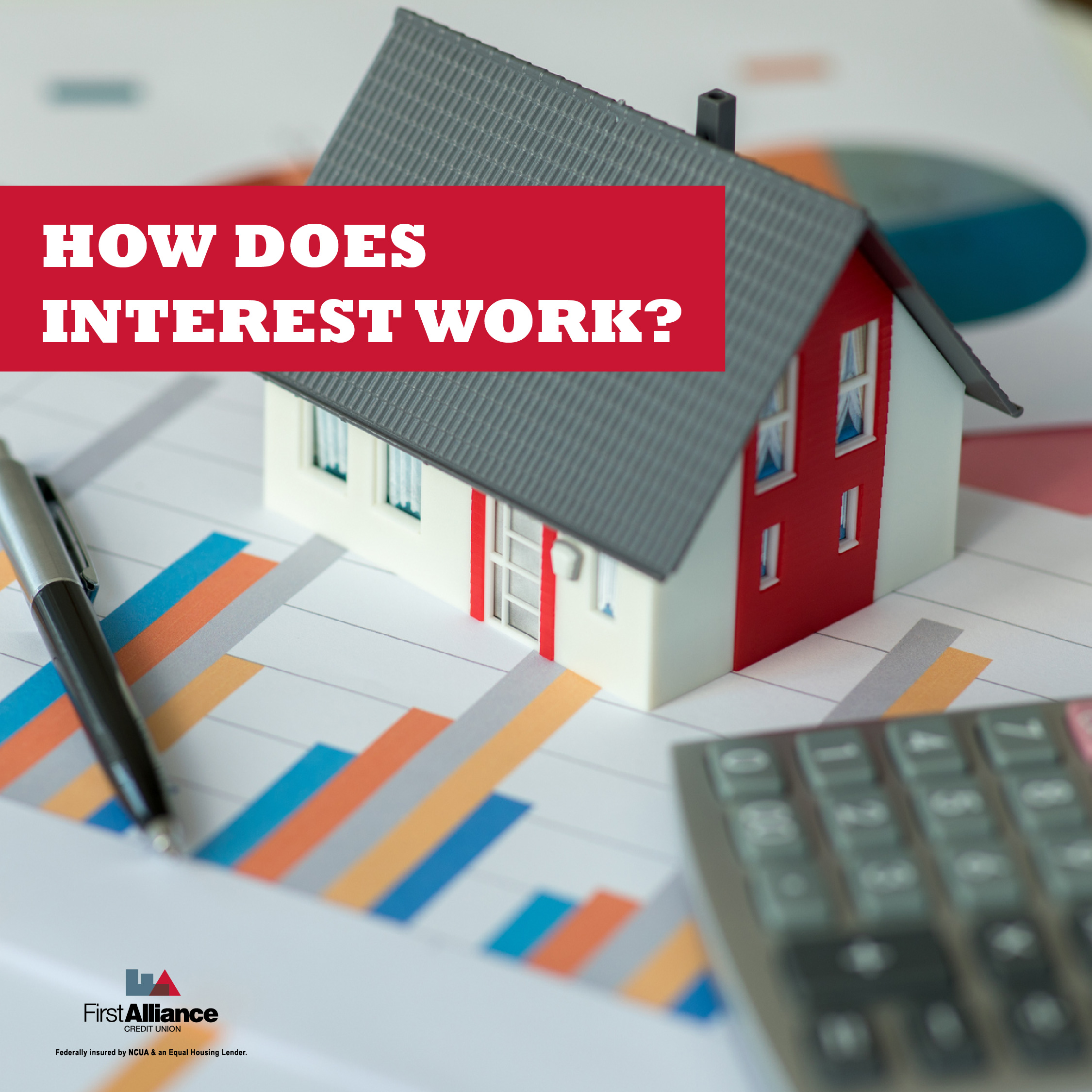How Does Interest Work?
If you’ve ever opened up a savings account or taken out a loan, you’ve heard the term interest before. You also probably have a rough idea of what it...
3 min read
 Chris Gottschalk
:
Oct 12, 2023 4:45:00 AM
Chris Gottschalk
:
Oct 12, 2023 4:45:00 AM

When the Federal Reserve, aka the Fed, announces they’re raising interest rates, the news always focuses on whether the higher interest rates will stop inflation and how large corporations will react. There might even be some speculation about how rising interest rates will affect global economics.
However, if you’re like most people, what you really want to know is how rising interest rates will affect you personally. Will you be getting more interest from your savings account, or will the monthly payments on your loans go up instead? Most importantly, what are the best financial moves to make when interest rates rise to help you reach your personal financial goals?
.jpg?width=1200&height=630&name=FA897_23_Blog_InterestRates2%20(1).jpg)
Trying to predict how rising interest rates will affect your investments or savings can be tricky. Some investments benefit from a higher interest rate, while others do not.
As the Fed raises interest rates, you might see the interest rate on your savings accounts rise as well. This includes:
While this might not make you rich, taking advantage of these higher interest rates can cause your money to earn even more money.
It’s hard to predict what stocks will do as interest rates rise. Usually, rising interest rates signal strong economic growth, which should raise stock prices However, since rising interest rates make loans more expensive and many businesses borrow money to fund new projects, profits might go down. If you’re wondering what to do with your stocks, your best bet is to talk with a financial advisor.
When the Fed raises the prime interest rate, the value of existing bonds usually falls. This is due to new bonds with higher yields becoming more attractive to investors. However, bonds with shorter maturities won't be as affected as long-term bonds will.
Loans and lines of credit are affected by rising interest rates differently. Much of the impact to your wallet will depend on when you took out the loan and if the interest rate is variable or not.
New borrowers are the most likely to feel the impact of the Fed raising interest rates. Almost every type of loan will eventually have a higher rate of interest, including:
Unfortunately, a higher interest rate means you’ll pay more over the life of the loan. It may also mean you’ll have a higher monthly payment than if you were to get the same loan at a lower interest rate.
Existing borrowers shouldn’t be affected as much by rising interest rates, provided that their loans are fixed-rate, which means that their interest rate was locked in when they got their loan. If your loan has variable-rate interest, though, you’ll want to see if your interest rate has gone up.
One of the most common variable-interest rate products are credit cards. The interest on almost every credit card will increase as the Fed raises interest rates, which means anyone who is carrying a balance on their credit card will end up paying more in interest. If you’ve got credit card debt, try to pay it down as much as possible.
Once you know how rising interest rates can affect loans and investments, one big question remains—how do you take advantage of this information? Here are some suggestions:
Lock in debt at fixed rates: The more fixed-rate debt you have, the less you’ll be affected when interest rates rise.
Prioritize paying off variable-rate debt: Since rising interest rates will affect this type of debt the most, make sure to pay it off as soon as possible.
Put money in high-interest savings accounts: Both your short term financial goals and long term financial goals can benefit from opening up a high-interest savings account or two. Consider moves like:
Monitor and Adjust: Make an effort to review your finances at least once a month, including:
Be prepared to make adjustments to your accounts depending on how the interest rates affect the economy, and get a financial advisor’s help if you’re not sure what to do.
When the Fed raises interest rates, its primary target is large corporations, but your personal finances may be affected too. You’ll probably notice the effects of rising interest rates the most if you apply for a new loan, but you’ll also see rising interest rates affecting variable-rate interest as well, especially if you have a credit card. However, you’ll also benefit a bit from rising interest rates since you’ll get more interest on most types of savings accounts
If you’re trying to figure out how you’ll be affected by rising interest rates, talk with a member advisor at First Alliance Credit Union. They can help you understand whether your loans have a fixed or variable interest rate, and give you advice on which types of savings accounts are the best options for you. Once you know what steps you want to take with your money, log on to our online banking platform or mobile app to easily transfer money, make payments and even open up investment accounts like IRAs and Coverdell Education Accounts.

If you’ve ever opened up a savings account or taken out a loan, you’ve heard the term interest before. You also probably have a rough idea of what it...

A savings account offers several financial advantages, but a high interest rate usually isn’t one of them. Savings accounts with a half percent...

If you're new to the world of home financing and have built some equity in your home, you might be considering a Home Equity Line of Credit (HELOC)...